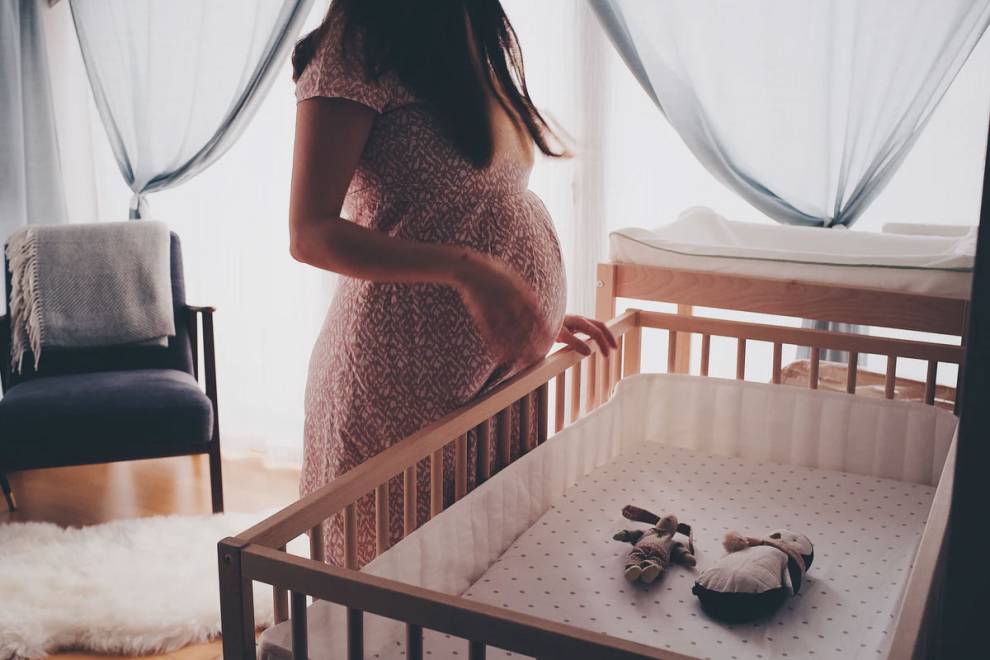Zits, spots, and pimples - what causes pregnancy acne and how to treat it?

Mommyhood101 independently tests and curates baby gear to help you make informed decisions. If you buy products through links on our site, we may earn a commission.
Pimples, zits, acne, blemishes, whiteheads, blackheads, large pores, whatever you want to call them, are a total nuisance, can be very painful, and are often embarassing.
With all the challenges of pregnancy, no grown adult wants to also worry about acne suddently making its first reappearance since teenage years.
But just like those teenage years, pregnancy brings on a sudden surge of hormones.
Pregnancy Acne Causes
Progesterone is one of the biggest culprits, causing your skin to secrete more oil than usual. That oil is called sebum and it can clog your pores with bacteria, causing breakouts.
Breakouts during pregnancy usually start around weeks 6-8 of pregnancy, but some moms experience it sooner and some later.
Sometimes pregnancy acne can last through your entire pregnancy, and sometimes it resolves itself after a few weeks or months.
Hormonal acne during pregnancy is made worse by the fact that you're also likely retaining water, not sleeping as well as usual, stressed out, and your eating habits are changing.
No matter what the cause, pimples can prove a minor annoyance or a major frustration and embarrassment. Getting rid of the issue is complicated by the fact that pregnant women want to avoid most medications (talk to your doctor) and are hesitant to use some typical acne treatments (like benzoyl peroxide or salicytic acid).
Treating Pregnancy Acne
- Stress reduction. Stress is a huge culprit with pregnancy acne, and your body releases a ton of hormones when it's stressed. These interact with all the pregnancy hormones and can wreak havoc on your skin. I know it sounds cliché, but you need to take some time for yourself and relax. Try yoga, focused breathing, walking in nature, and light exercise. The goal is to help lower stress, so do what relaxes you!
- Gently wash your face. Try to avoid any washcloths or products that are overly harsh or drying to your skin. Try a gentle and non-comedogenic cleanser like Dove face soap. Use it once in the morning, and once before bedtime.
- Avoid foods that trigger flare-ups. If you notice any associations between certain foods and acne flare-ups, obviously you should try to avoid those foods. Some foods promote an inflammatory response more than others, and should be avoided.
- Use a gentle toner. After washing your face, try using a gentle toner like witch hazel. This can help strip dead skin cells, oil, and bacteria from your skin. Just be careful to get one that doesn't contain alcohol.
- Try an ice cube. Place an ice cube on the trouble spot at the first time you notice that there is some pain and redness starting under the skin; I usually do about 10 minutes of this, alternating 1 minute on and 1 minute off. Do this at night-time before bed and you should notice dramatically reduce swelling the next day.
- Aerobic exercise. Sweat has natural antimicrobial properties when it is produced by sweat glands on your face, because it contains Dermcidin. Dermcidin is a peptide naturally produced by your body, with a broad spectrum of antibiotic/antimicrobial properties. The more you sweat, the more dermcidin can fight against p.acnes from deep within your pores. We suggest brief work-outs every couple days, maybe about 20 minutes of exercise. The important part is that your heart rate is elevated to the point that your core body temperature is rising and sweat is being produced. Even better if you can exercise in a hot place, like outside on a warm day, or otherwise get your body sweating in a short period of time (for example by wearing sweatpants and a sweatshirt during exercise). Before you begin an exercise regimen during pregnancy, you must get permission and guidance from your doctor to make sure any plan is safe for you and your growing baby.










